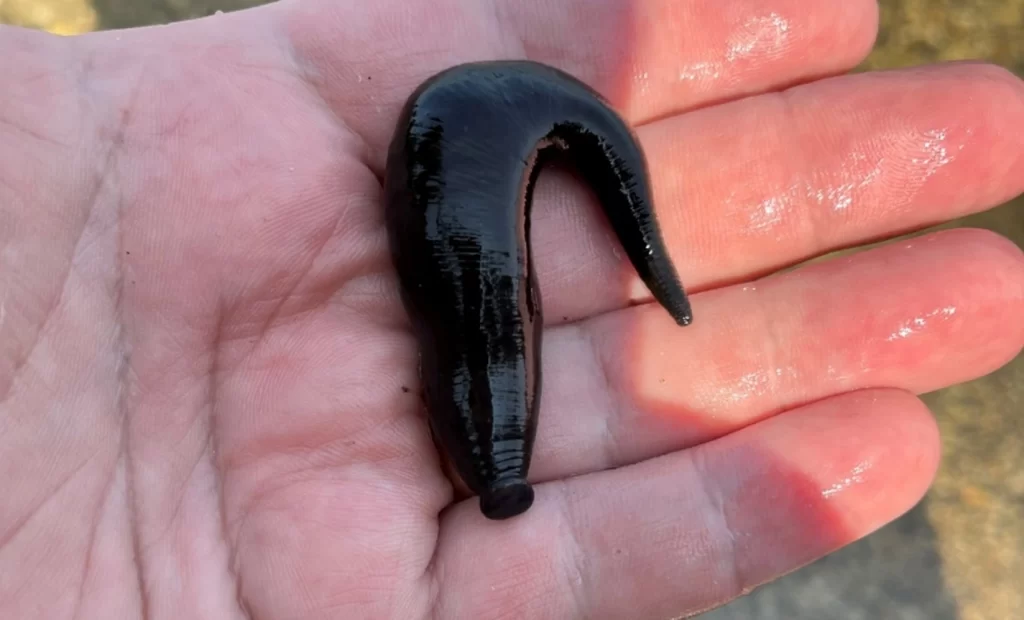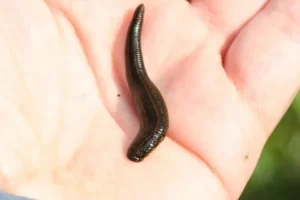Leeches are often said to be the same as the term “bloodsuckers.” In a way, though, this relation between the two goes a bit beyond what it literally says. Whereas all the leeches are parasitic animals that feed on everything they can find, not every species feeds on blood.
Are leeches and bloodsuckers the same? To answer the question, we have to delve deeper into the world of leeches, their biology, and their behavior. It is in those nuances that all the leeches will be labeled as bloodsuckers or can be valued more for diverse characteristics.
What Are Leeches?
Actually, leeches belong to a phylum called Annelida; this phylum includes other segmented worms. From the numerous living habitats of leeches, there are freshwater lakes, rivers, and ponds, while others are terrestrial and marine regions. There are over 700 species of leeches and feeding varies widely among the leeches.
There are four major classifications that this group of worms can be categorized into:
- Blood-feeding leeches (Hematophagous): They suck the blood from the animals, which also include human beings.
- Predator leeches: These feed on small animals such as snails, worms, etc.
- Detritivore leeches: These consume decaying organic matter and are decomposers of waste.
Of course, by definition, some leeches do drink blood, but many don’t. And you have to get the variety in leech species right.
What Are the Bloodsuckers?
Bloodsuckers are animals that feed on blood. They range from small insects like mosquitoes, leeches, and lice to bats. They can spread viruses and germs to humans by sucking blood, resulting in various diseases including chikungunya and dengue virus.
The lamprey fish latches onto other fish to suck blood, whereas mosquitoes have anesthetic in their saliva, allowing for painless blood sucking.
Why Are Some Leeches Called Bloodsuckers?
There are blood-feeding leeches. They have strong evolution with a specialization for blood feeding. Their jaws are sharp, and they pierce the skin of their host and suck out their blood. For better ingestion, they secrete a chemical called hirudin in a solution to prevent blood clotting from occurring.
Maybe the most famous of these blood-feeding species is the medicinal leech, Hirudo medicinalis. Man has used it in medicine for thousands of years-indeed for bloodletting and, more recently, in surgeries where doctors have to restore circulation of blood in tissues.
Curiously, when a leech sucks blood, it feels almost painless because the saliva of the leech contains substances that anesthetize the skin. The host hardly feels the bite.
Are All Bloodsuckers Leeches?
Besides leeches, there are many other “blood-sucking creatures.” Many other animals drink blood; these include: mosquitoes, ticks, bed bugs and even vampire bats. These different animals feed in different ways-for example: mosquitoes use their long mouthparts to pierce the skin and suck out blood while ticks attach themselves to their host and then feed for hours or even days.
Although these are blood-feeding animals, they do not belong to the same family as the leeches. The term “bloodsucker” has been misapplied to almost any creature feeding on blood, not necessarily to leeches.
Does Each Leech Feed on Blood?
No, not all blood-feeders are leeches. Actually, most of the leeches have diets which are not covered by the blood only. In fact, leeches can be carnivores and feed on smaller animals like insects, worms, snails, and so on. They just go out and kill their prey as does a small fish or insect.
There are the detritivores, which are heterotrophic consumers feeding on decomposing plant and animal matter. These can add to the decomposition of dead organisms, cycle of nutrients, and put them back into the system. Part of their survival arsenal, these play a role vital in keeping them in balance with the environment.
What Sets Apart Leeches from Other Blood Feeders?
Leeches are, without a doubt, blood-feeding animals of a kind that no other animal is similar to. They are attached to the host using special suckers both at the ends of the body, and they feed after biting it using the mouth contained in the front sucker.
However, what characterizes leeches from any other blood-feeding animal is the storage capacity in their bodies for a lot of blood. Some of these leeches may live for up to months without feeding after a single meal. This is quite different from mosquitoes, which need to feed much more frequently to sustain their survival.
Most blood-drinking leeches are harmless in their diet as parasites because they suck only tiny amounts of blood and anticoagulants ensure rapid closure of the wound.
Leeches in Medicine: The Good Side of Bloodsuckers
“Bloodsucker” might suggest something slightly sinister, but leeches have been assisting physicians in doing good for centuries. They especially have been used in the guise of Hirudo medicinalis for treatments that range from bloodletting to reconstructive surgery today.
Although leeches are still applied in microsurgical interventions to allow the reestablishment of blood flow in tissues whose veins have shut down, some of the components in leech saliva contain anticoagulants that prevent the formation of clots of blood.
As a result, blood flows more smoothly owing to these anticoagulants. This clinical application once again points to the necessity of leeches despite their primary reputation as blood suckers.
Conclusion
To put it all together, not all leeches are bloodsuckers. The term “bloodsucker” merely applies to hematophagous leeches—that is, blood-eaters. But many leeches are predators or detritivores, feeding on small animals or decaying matter.
These are marvelously diversified creatures with feeding habits that are incredibly diverse. And while most wear the label of blood-suckers, it would do good to note that there are also those that don’t.
Activity in the environment and even in medicine is so much more complex than this mere blood-sucking. Buy the best leeches for medical purposes in bulk from our bulk bloodsucking leech supplier at wholesale prices.
So, the next time someone calls a leech a bloodsucker, you can tell him that not all of them fit that description!





